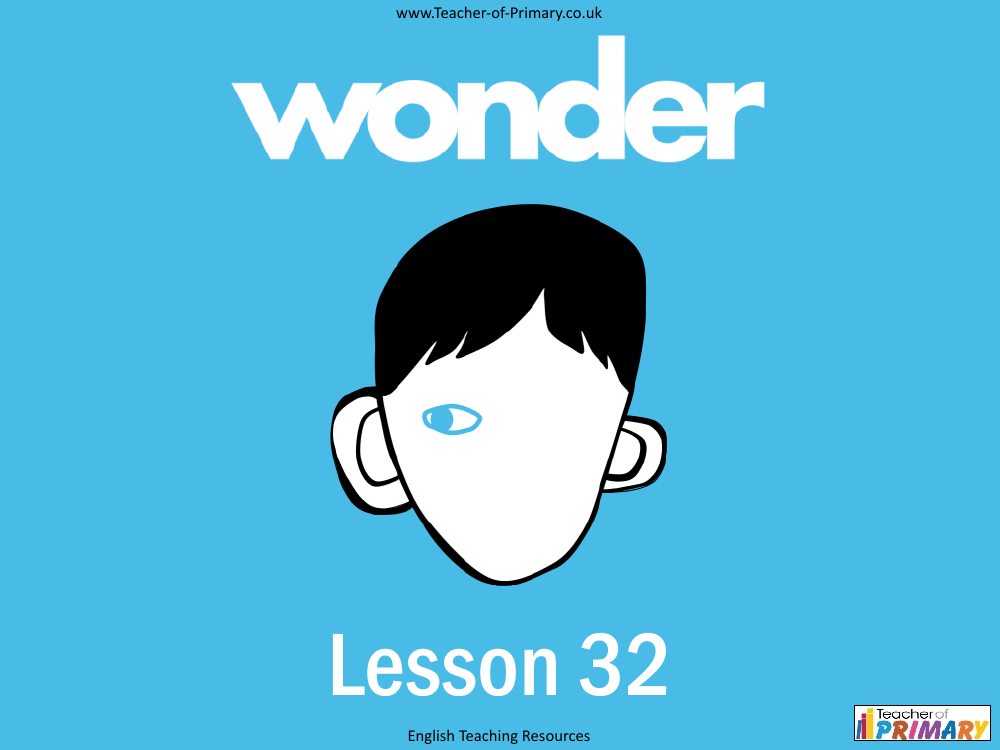Wonder Lesson 32: Letters, Emails, Facebook and Texts - PowerPoint

English Resource Description
Lesson 32 in the English Teaching Resources series focuses on different forms of communication, including letters, emails, Facebook, and texts. The lesson begins with a class reading and discussion of pages 160 to 167 from the book 'Wonder', encouraging students to enhance their vocabulary using a 'Wonder Dictionary' sheet. As they read, students are prompted to think about the story's plot, characters, and themes. The lesson also explores the use of the subjunctive form in English, a formal mode of expression used for making requests, suggestions, or giving advice. Students learn to replace verbs like 'was' and 'were' and to adjust verb forms to align with the subjunctive mood, with examples provided for practice.
Further activities in the lesson involve students working in pairs to re-read the specified chapter from 'Wonder', identifying formal words and phrases. They focus particularly on sections of formal communication such as emails between characters like Julian's mother and Mr Tushman, as well as Jack's mother's email to Julian's mother. This exercise helps students to understand how formal language is used in written communication. Examples of formal vocabulary choices are provided for students to compare with their findings, which include phrases such as "expressed their regret", "I am writing to let you know", and "rest assured that". These examples serve to illustrate the nuances of formal language and its application in various contexts.
